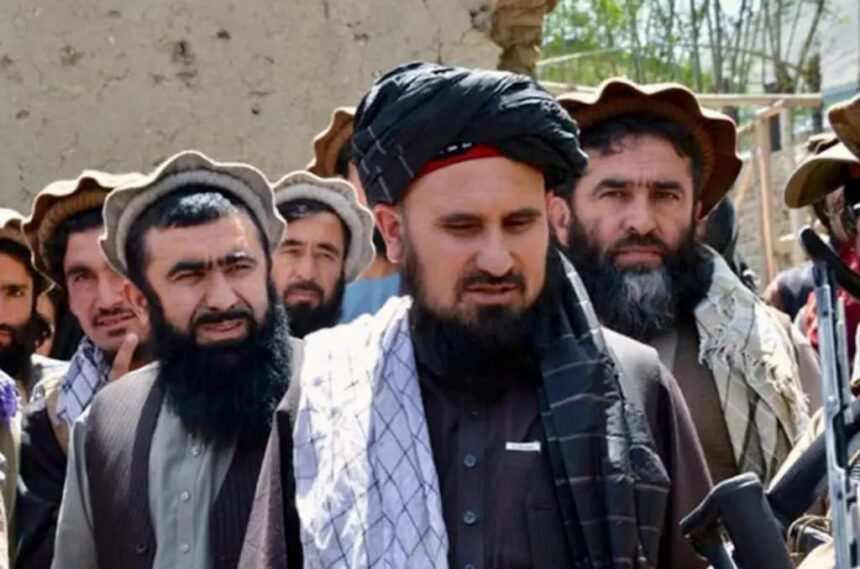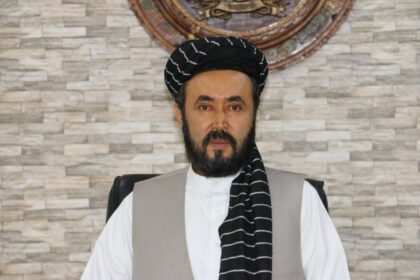RASC News Agency: In a sign of growing instability in Afghanistan’s northeastern provinces, the Taliban have deployed high-ranking military officials to Badakhshan following a deadly confrontation between their armed forces and local farmers. The move comes amid intensifying public anger over what many residents are calling discriminatory and brutal crackdowns disguised as counter-narcotics operations. Local sources confirmed to RASC News that Qari Fasihuddin Fitrat, the Taliban’s Chief of Army Staff and a native of Badakhshan, arrived in the province on Monday, May 26, accompanied by Amanuddin Mansoor, a senior Taliban commander. Their unannounced visit to the volatile province underscores the regime’s growing anxiety over the expanding civil unrest, particularly in the district of Jurm.
According to eyewitness accounts, tensions erupted after Taliban forces launched a violent campaign to destroy poppy fields in the village of Farghamanj. The operation was met with strong resistance from farmers who accused the Taliban of selectively targeting Tajik-populated regions, while turning a blind eye to poppy cultivation in Pashtun-dominated areas in the south. The crackdown, executed with little regard for due process or community consultation, left several civilians wounded and further inflamed long-standing grievances. “This isn’t about narcotics,” said one resident of Jurm. “This is about control, coercion, and silencing ethnic minorities. If the Taliban were serious about eradicating opium, they would start with Helmand not with the poorest farmers in Badakhshan.”
Critics say the Taliban, despite claiming Islamic unity, have pursued an aggressive agenda of ethnic centralization and suppression under the veneer of religious governance. Former government officials and regional elders have denounced the group’s actions as “systematic ethnic persecution,” accusing the regime of weaponizing Islamic rhetoric to legitimize its authoritarian grip. “They preach unity, but practice division,” said a former provincial governor now living in exile. “Their actions sow dangerous seeds of ethnic discord that threaten Afghanistan’s already fragile social fabric.”
Badakhshan, a province known for its resistance to Taliban rule in the past, holds symbolic and strategic importance for the group. The presence of Qari Fasihuddin one of the few non-Pashtun figures in the Taliban’s upper ranks is widely interpreted as an attempt to contain dissent through familiar faces. However, local skepticism remains high. Many view the deployment of Taliban leadership not as a gesture of reconciliation, but as a tactical maneuver to project dominance and stifle growing unrest. Human rights observers have warned that the situation in Badakhshan could become a harbinger of wider regional uprisings, especially in areas where ethnic minorities feel increasingly marginalized under the Taliban’s de facto rule. The group’s failure to address grievances through dialogue, coupled with its continued reliance on military suppression, has only deepened the rift between rulers and the ruled.
“This is not governance it is occupation cloaked in the language of religion,” said a Kabul-based analyst. “The Taliban’s legitimacy continues to deteriorate with each act of repression. Their response to the Badakhshan crisis reveals not a commitment to justice, but a desperate attempt to keep control over an increasingly resentful population.” Meanwhile, calls are growing for international attention to the plight of Afghanistan’s northern provinces, where communities continue to suffer under the weight of Taliban-enforced policies. Despite their claims of national governance, the Taliban’s rule remains rooted in ethnonationalist ideology, exclusionary policies, and violent suppression of dissent.
As the situation in Badakhshan remains tense, hopes for a peaceful resolution appear dim unless the Taliban abandon their punitive tactics and engage in meaningful, inclusive dialogue. Until then, the people of Badakhshan and many others across Afghanistan are left to navigate the harsh realities of a regime that governs not through consensus, but through coercion.






